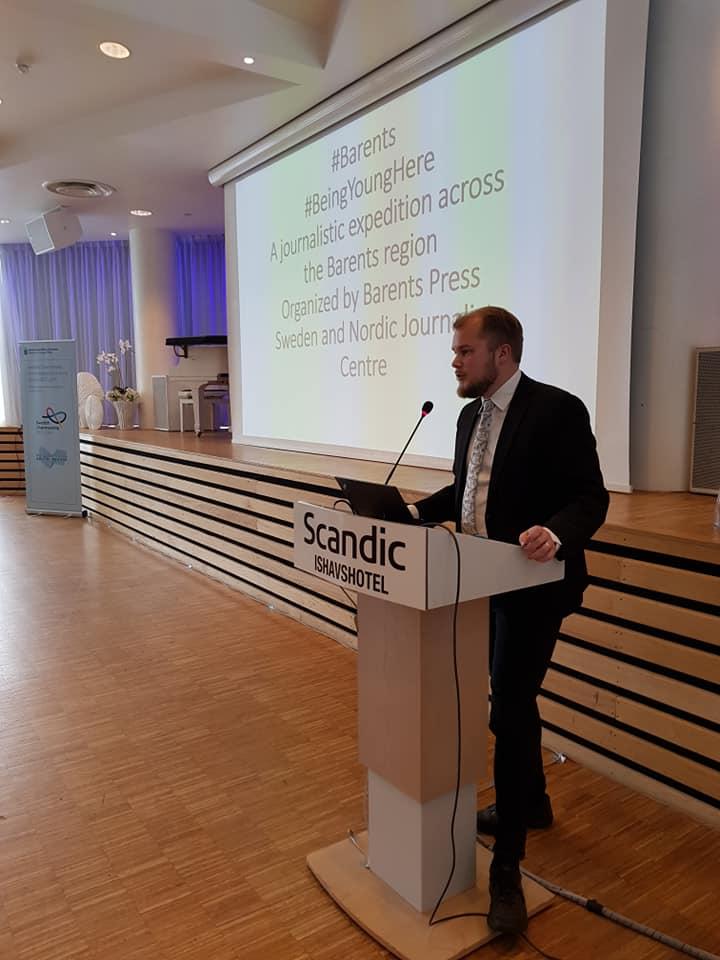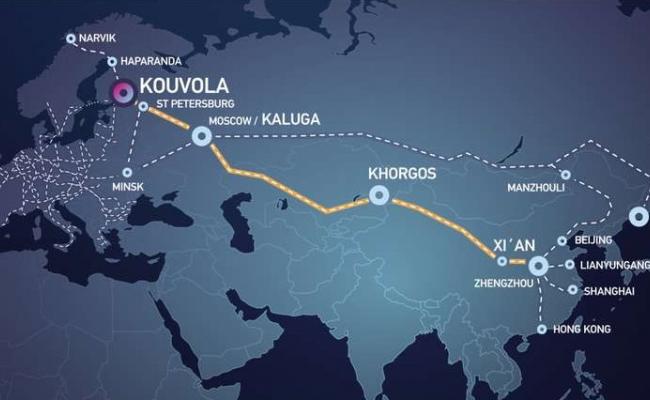Acting Barents, Thinking Arctic: Maximizing Attention to the North Through Regional Cooperation
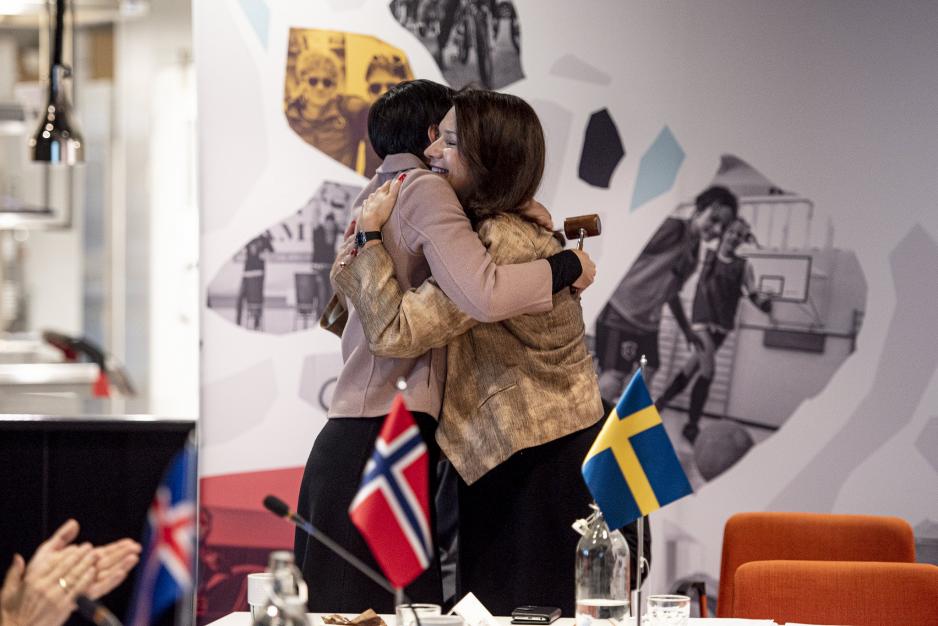
Norway taking over the BEAC Chairmanship at the Ministerial Meeting in Umeå, Sweden on 3 October 2019. (Photo: Norwegian Barents Secretariat)
The Ministerial meeting of the Barents Euro-Arctic Council took place in Umeå, Sweden on 3 October, marking the transition of the Chairmanship from Sweden to Norway for the 2019-2021 period.
The famous saying “think globally, act locally” can be easily applied to the Barents cooperation. Nowadays, with all eyes on the Arctic and climate change, multidimensional and multilateral regional cooperation structures like the Barents Euro-Arctic Council (BEAC) might seem less visible. Yet, they are the ones that keep the world's northernmost communities afloat, in the truest sense of the word.
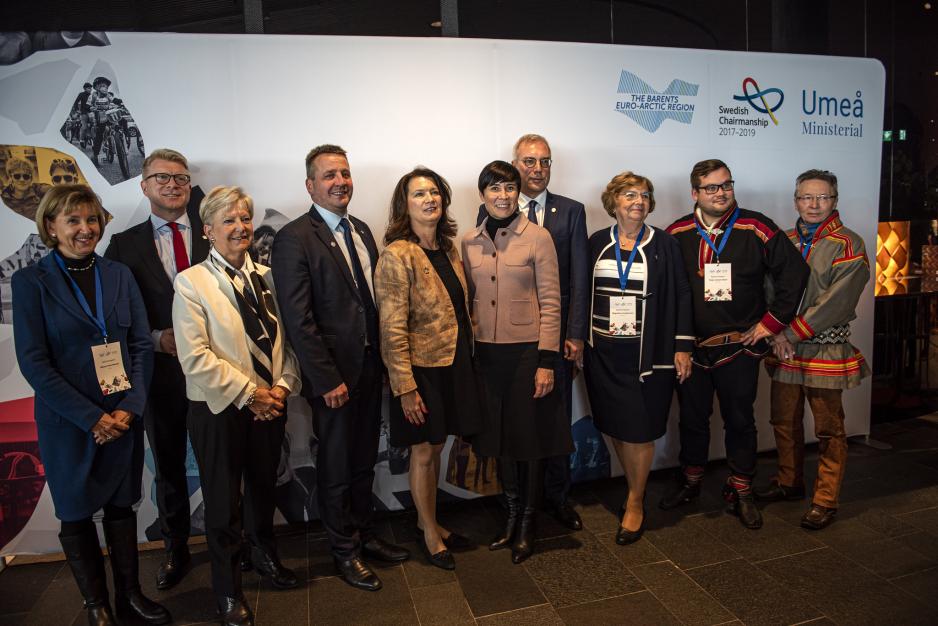
BEAC Family Photo at the Ministerial meeting in Umeå (Photo: Norwegian Barents Secretariat)
BEAC 2019: Crawling Along, Yet Forward
Officially called XVII Foreign Ministers’ Session, the Barents ministerial lacked some key representatives this time. In contrast to the previous meetings in Oulu and Arkhangelsk in 2015 and 2017 respectively, Russia’s Minister for Foreign Affairs Sergey Lavrov and his Finnish counterpart Pekka Haavisto did not participate. The absence of both Lavrov and Haavisto from the meeting was an unfortunate coincidence and a conspicuous loss, which obviously made the foreign ministers’ session less representative.
Nevertheless, the Barents ministerial meeting saw the adoption of the Declaration and thus marked the overall success of the two-years’ period of the Swedish Chairmanship and its efforts in strengthening the Barents cooperation. The Declaration emphasized the “human, social, environmental and economic capital of the Barents region”, called for increasing youth engagement and implementing the Barents Action Plan on Climate Change. It also stressed the significance of the strong collaboration on the regional level and highlighted the role of the Barents Regional Council. For many years, the Barents Regional Council has been advocating for establishing a financial mechanism in order to support the work of BEAC’s working groups and make it more effective and visible. “It is an interesting proposal,'” says Norwegian Minister for Foreign Affairs Ine Eriksen Søreide. If established, this mechanism would enhance the sustainability of regional development in European and Russian North and significantly broaden the scope of its possibilities
Commenting on the outcomes of the BEAC Chairmanship, Swedish new Foreign Minister Ann Linde says that Sweden is particularly satisfied with the work on environment and climate change, the most challenging area of cooperation. Taking over the lead in promoting Sweden’s feminist foreign policy on the international arena, she also noted that Sweden has strived to apply the feminist approach during its Chairmanship in the Barents Council: “The feminist perspective contributes to enhancing certain structures, rethinking the ways in which they work, as well as who they represent and who gets to represent whom. It is crucial that women have the same opportunities as men, and sometimes one has to interfere and actively change the way it looks”.
So far, the feminist approach has not been integrated into BEAC’s strategies, neither stated in any official document, except for the recent Declaration of the Transport Ministerial meeting (“transport system should meet the needs of both women and men”). Keeping in mind Russia’s uneasy stance towards gender equality issues, implementation of the feminist approach might well become the responsibility of younger generations.
Youth Engagement Crucial For Peace And Stability In The North
One of the top priorities of the Swedish Chairmanship during 2017-2019 was explicit focus on youth issues and enhancing youth engagement in the Barents cooperation. “We have engaged the youth in the work with the ministers, supported the declaration on youth cooperation, which young people prepared themselves, and I think that it is a good basis for future collaboration,” says Ann Linde.
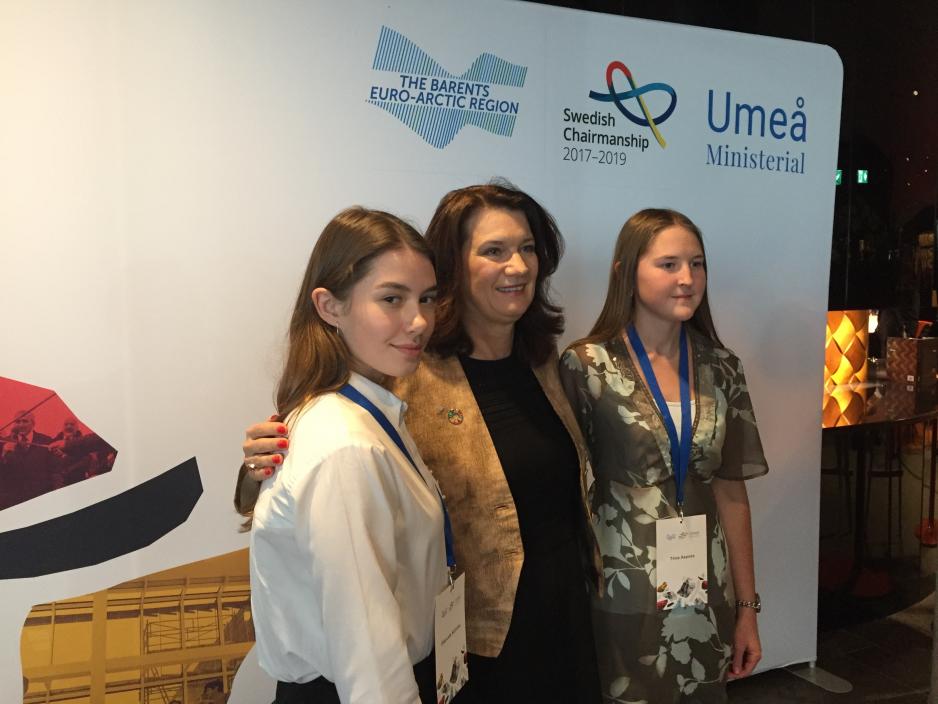
Sweden’s Foreign Minister Ann Linde with student representatives during Barents Ministerial Meeting in Umeå. (Photo: International Barents Secretariat)
Tim Andersson, International Secretary at the Barents Regional Youth Council (BRYC), notes that “the largest strength of the Barents Cooperation is the many people to people contacts, and there youth is one of the most active participants. It is important that this is reflected in all present and upcoming chairmanships”.
Among the highlights of the Swedish Chairmanship one could name the relaunch of the Joint Working Group on Youth, publication of a documentary book #Barents #BeingYoungHere telling young people’s stories and experiences from the Barents region, youth educational project “Applying Best Practices and Building Capacity in Arctic Indigenous Education” as well as the 25th anniversary conference which was held under the moto “Youth Perspective for the Future”.
Perhaps one of the biggest breakthroughs of this two-year period is the endorsement of youth recommendations and the unanimous willingness of the BEAC members to include representatives from the Barents Regional Youth Council as advisors in its working groups as well as have the latter reported on ways of youth engagement in particular fields of work. In its Declaration, the BEAC “requested to further monitor progress and implement activities in all areas of cooperation”.
Ine Eriksen Søreide assures that Norway will continue working on youth engagement in the Barents cooperation. “Greater mobility is strengthening the sense of community between young people and helping to build a common identity and mutual understanding in the region. Some of these young will be our future leaders. I believe knowledge and understanding across borders amongst our young is an important investment in future relations between the Barents countries,” she says in her interview to the International Barents Secretariat.
Yet, there is still a long way to go towards making youth participation an integral part of the multilateral Barents collaboration, especially when it comes to governance and decision-making. “It will be very interesting to see which direction the Norwegian and Västerbotten Chairmanship takes on youth issues. I can see that in the upcoming years a lot of emphasis will be put on the peaceful youth cooperation, but I also wish to see that youth is more actively invited and involved in the more formal part of the cooperation, the working groups and meetings. I think it is necessary in the long run of our joint cooperation to create an understanding of what is being done,” says Tim Andersson in this regard.
Visible Barents, Tangible Arctic
The fact that the two major events, the Barents Ministerial Meeting and the EU Arctic Forum, were organized simultaneously at two different venues sparked some controversies among the participants and led to some confusion. According to the official explanation of the Swedish officials, the intentional overlap of the two events was supposed “to maximize attention to key issues of the North”.
In contrast to the frustration of many politicians and experts, Tim Andersson believes that “it was a good idea to combine the Barents Ministerial meeting with the large EU Arctic Forum, that way the differences and strengths between the Arctic Cooperation and the Barents Cooperation were highlighted”.
In times when the Arctic sells the headlines, bringing more visibility to the Barents cooperation is a challenging yet vital task. Despite being the most populated area of the global Arctic, the Barents region has gradually fallen behind the Arctic hype and lost its discursive attractiveness. Yet, the Umeå Declaration reads: “the Council emphasized the importance of raising further awareness and visibility of the Barents cooperation, and stressed the need to increase focus on synergies between multilateral cooperation formats in the North”. Now it is up to Norway to revitalize the Barents cooperation and bring it back into its shape and up to its once high, honorable position in the international arena.

Norway taking over the BEAC Chairmanship at the Ministerial Meeting in Umeå, Sweden on 3 October 2019. (Photo: Norwegian Barents Secretariat)
Norway’s priorities for the Chairmanship in the Barents Euro-Arctic Council are ambitious. In its program, Norway aims to focus on health, people-to-people contacts and knowledge to “keep the Barents cooperation strong and resilient”. Having extensive experience in both broader Arctic and regional and cross-border Barents issues, Norway seems to take over the BEAC chairmanship at the right time. “When international cooperation is under pressure, we need strong multilateral structures like the Barents Cooperation to maintain stability”.
Keeping in mind the decades of BEAC’s successful maintenance of cross-border contacts and hundreds of multilateral projects on environment, culture, transport, education and tourism with practical outcomes, a more internationally visible and transparent Barents is a crucial part in shaping the future of the Arctic. Together with other multilateral intergovernmental platforms working in and for the North, “acting Barents” is a way to ground cooperation in the North and make it more tangible and comprehensible for the rest of the world.

